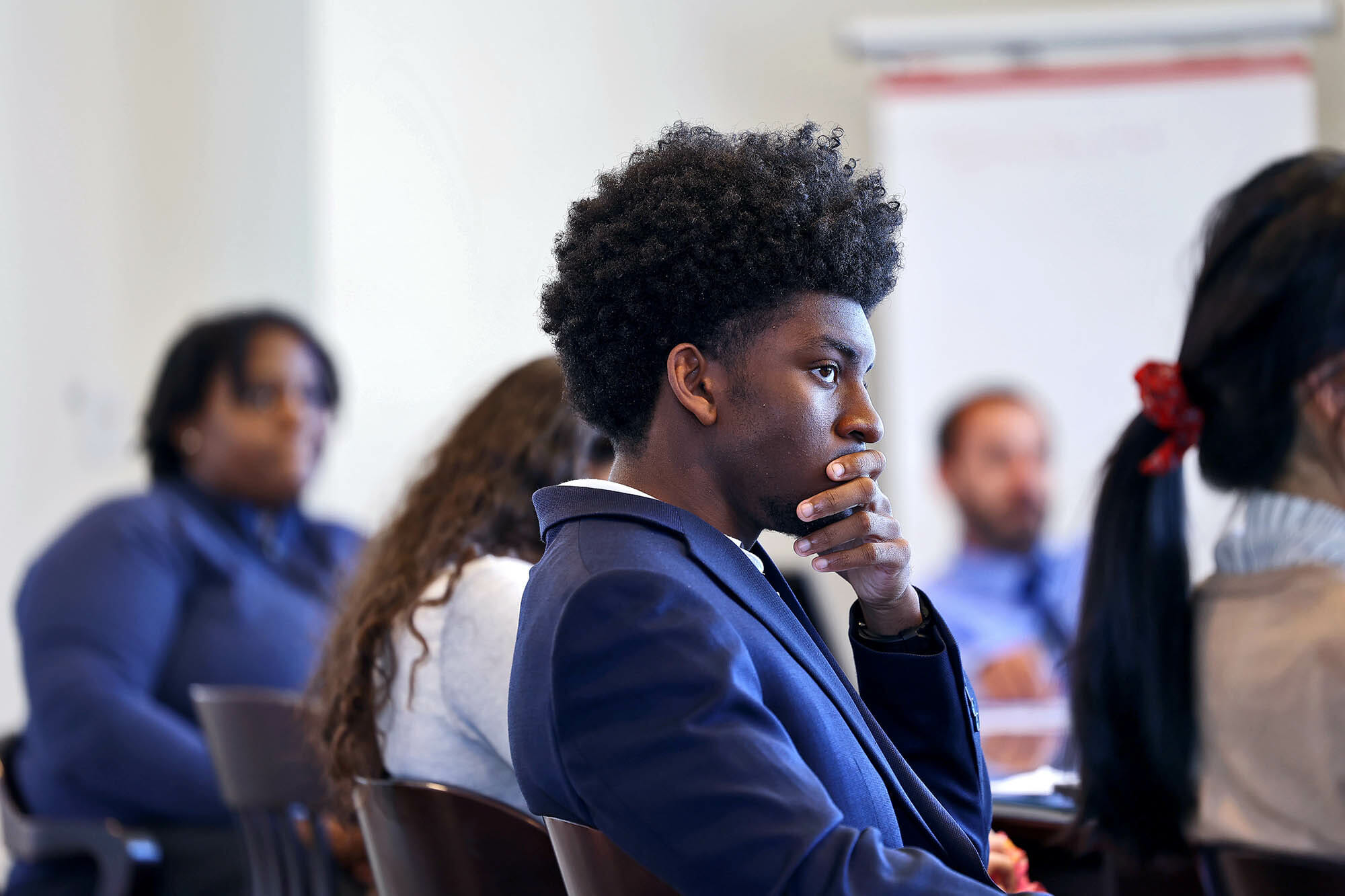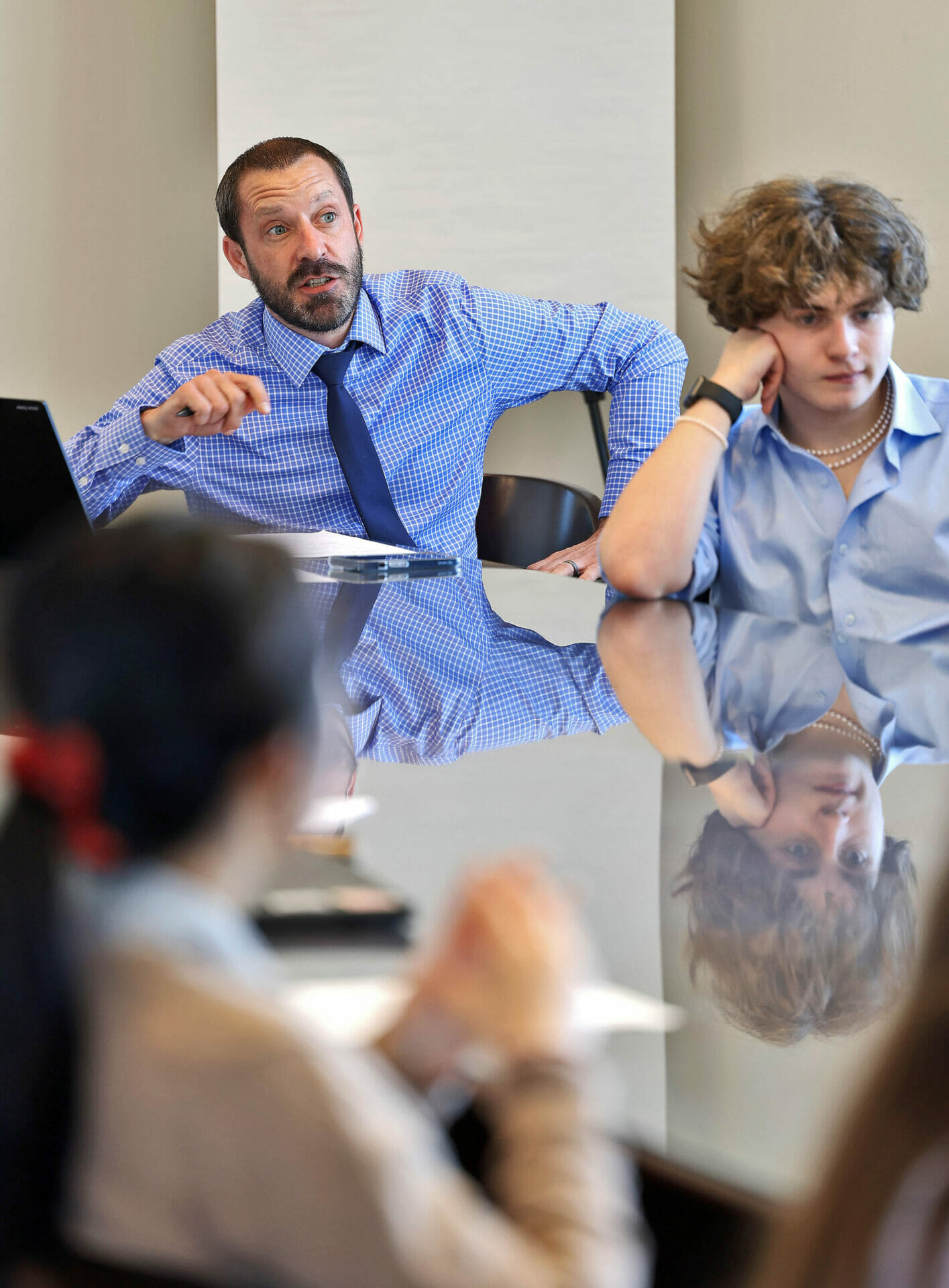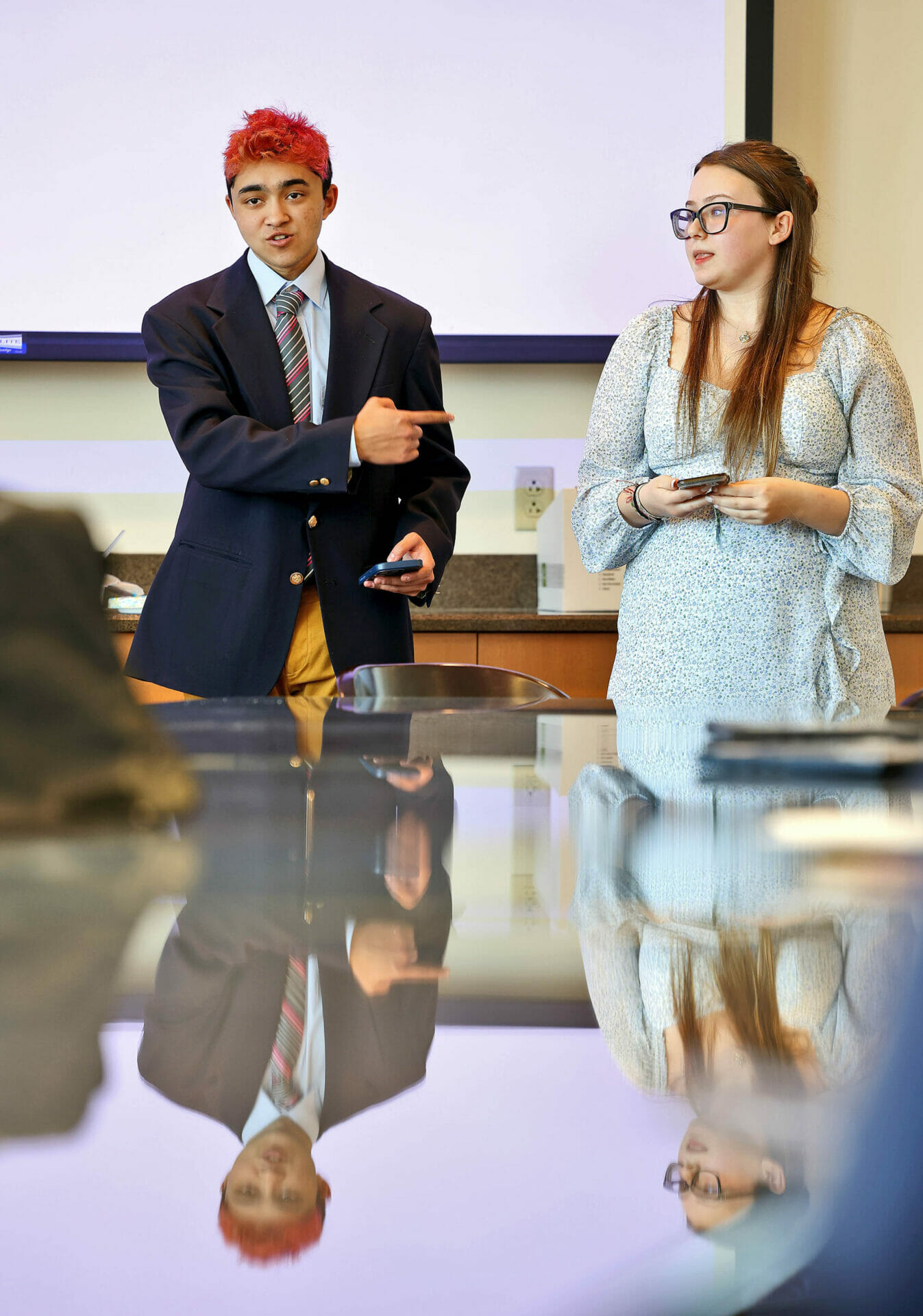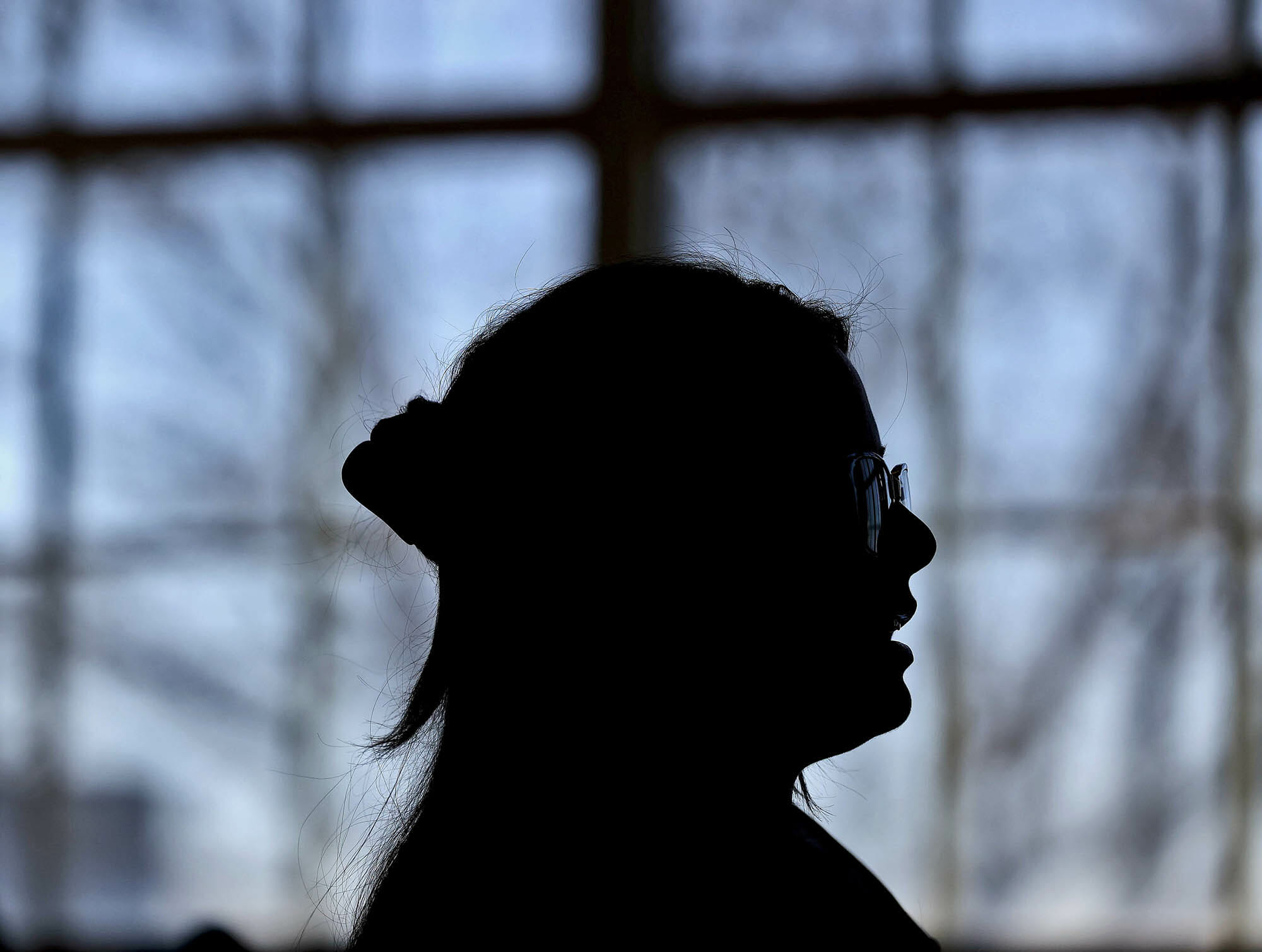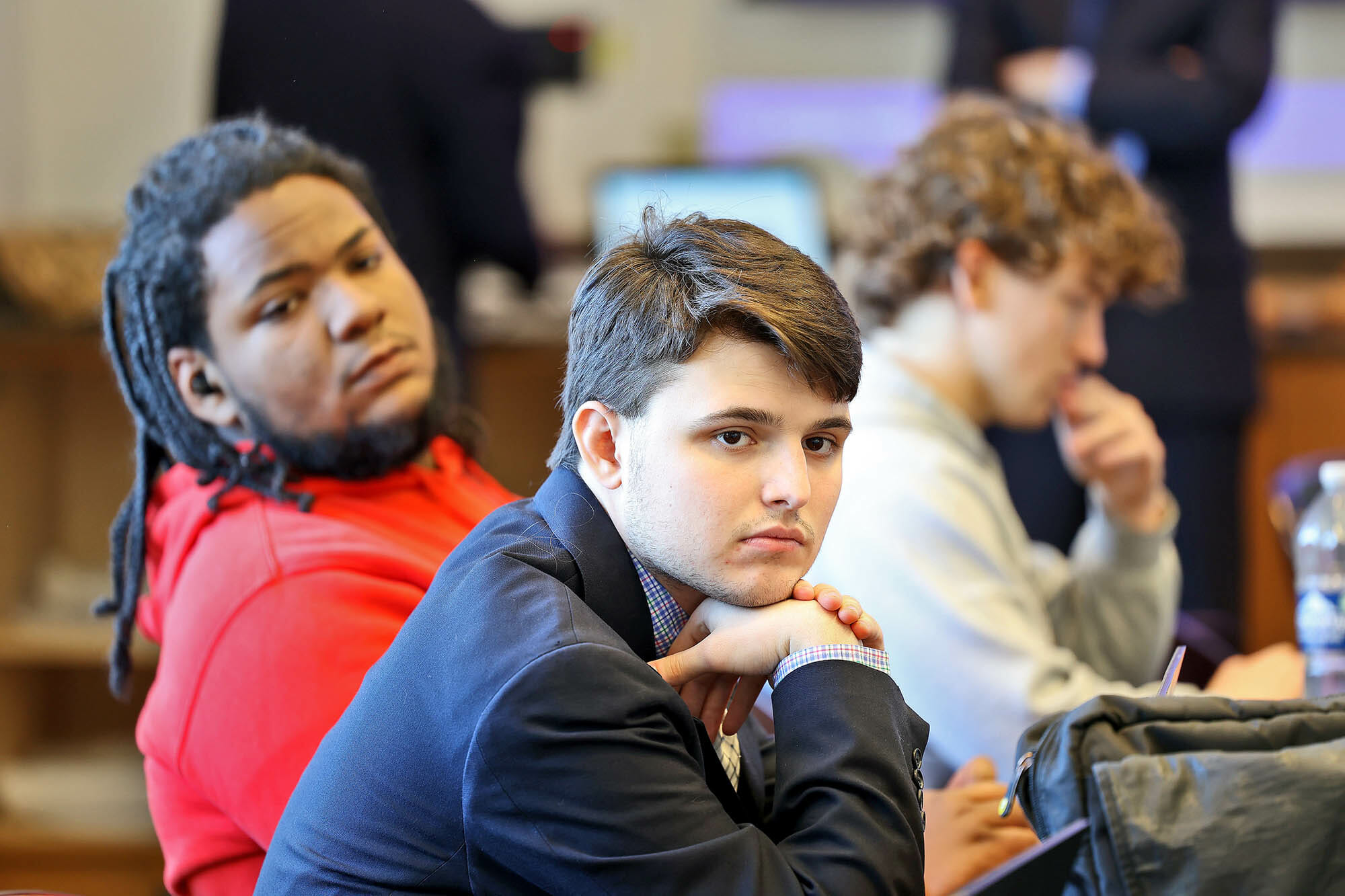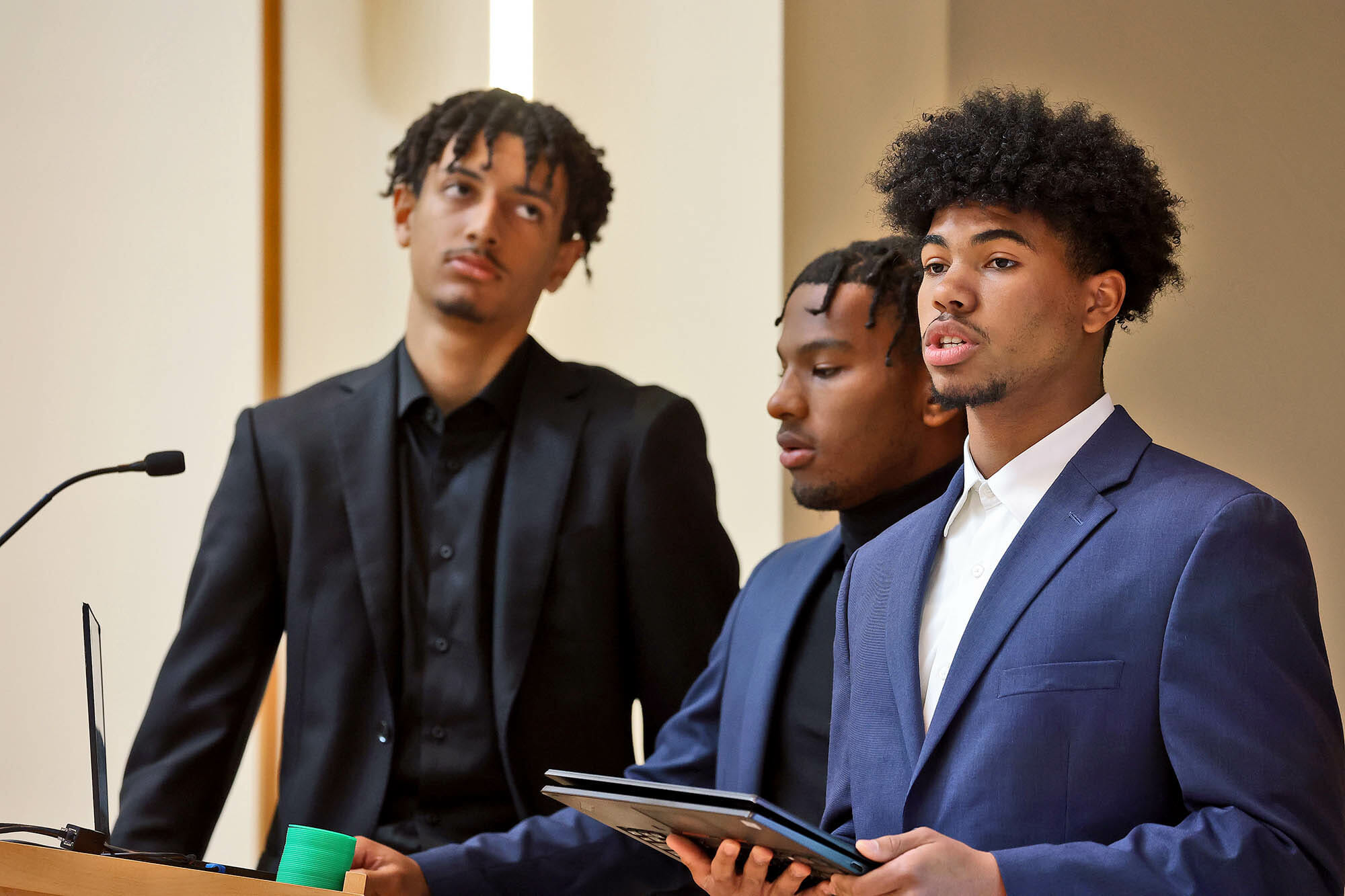How does access to education impact an individual’s economic success, influence their social mobility, or effect their community? What effect does it have on society? What are the consequences, for people and institutions, when educational outcomes are restricted? Those are the questions central to the lesson Jason Asher, Upper School History Teacher, and his sociology students are tackling.

Students were tasked with researching and writing proposals to „improve education outcomes.“ Some proposals tried to improve education outcomes from a macro level by examining the culture, financing, and demographics of entire districts, while others were micro proposals that included forms of instruction and assessment. “So some groups were really more philosophical while others took a more practical approach,” said Asher. Students have been studying social organizations and institutions, including the family, government, and economies. Since educational outcomes are intertwined with those institutions, Asher explained, “the underlying goal was to get students to identify weaknesses of the American education system and to research evidence-based ways to reform it.”
Students presented their findings to the class and defended their positions. That format gave classmates the opportunity to assess the research, examine the benefits and pitfalls, and weigh the proposal’s feasibility against competing societal interests. Students are given an array of different types of assessments over the course of the semester, and the presentations were “a more engaging way for students to present their findings than a traditional paper or Canvas test,” Asher said.
The incredible educational outcomes of our own Upper School students demonstrates their hard work and creative thinking.
Well done, Rams!
